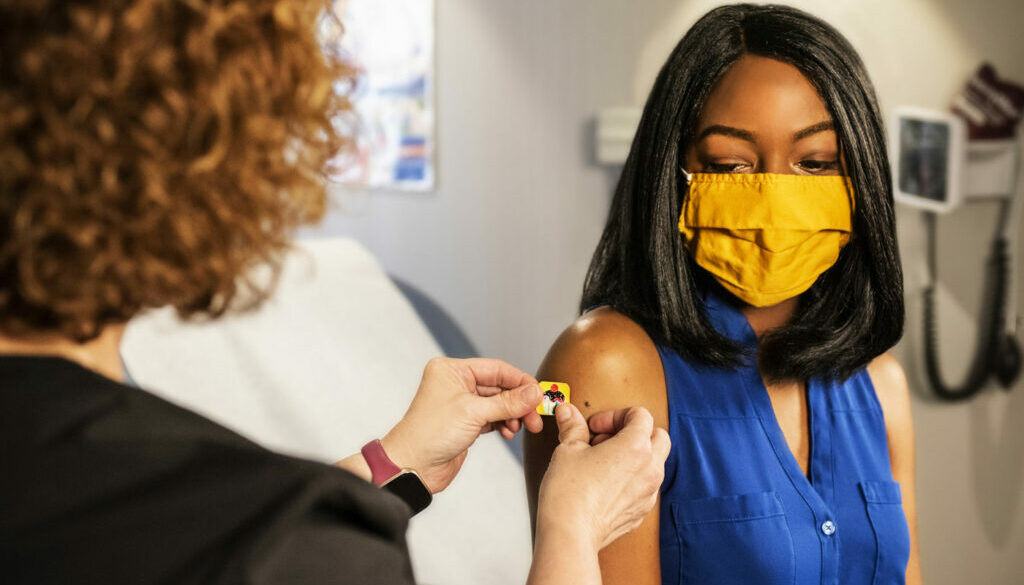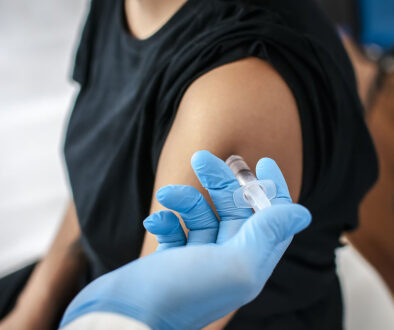When You Should Have Important Adult Immunizations
While you may have had all your basic vaccinations when you were a child, as an adult, there are still several immunizations you need to stay healthy.
For evidence, just look at the statistics:
● On average, around 400,000 Americans have experienced flu-related hospitalizations since 2010. During that period, the flu also killed more than 56,000 Americans, according to information from the Centers for Disease Control.
● Approximately 1 out of every 3 people will develop shingles in their lifetime.
● HPV – the human papillomavirus – is so common that nearly all sexually active men and women will experience the virus at some point.
Immunizations are an important part of safeguarding your overall health, and as internal medicine physicians in Raleigh, we’re in the perfect position to take a comprehensive view of your overall health. This includes determining which vaccinations are right for you and at what stage of your life you should take them.
Which immunizations do you need? That’s partially determined by your risk factors, your age and your lifestyle.
For example, those who frequently travel abroad may need certain vaccinations because they are more likely to be exposed to certain diseases such as yellow fever, which is transmitted by mosquitoes. Those who have had chickenpox when they were younger should consider a shingles vaccination when they are older.
We’ll take a look at the vaccinations you should have as an adult, when you should have them, and why they are important.
The Adult Vaccination Schedule
Vaccinations That Should Be Taken in Early Adulthood
THE HUMAN PAPILLOMAVIRUS VACCINE
Ideally, you’ve had your HPV vaccination before adulthood; it’s recommended for those 11 to 12 years old. However, if you didn’t receive the vaccination, it is possible to receive the shot through age 26, and, in certain situations, until the age of 45. If you are over 26, you’ll need to speak with us about your risks of HPV, and we can work closely with you to see if this is the right choice based upon your individual health history.
The CDC also suggests that:
- Young women can get the HPV vaccine until they turn 27 years old.
- Young men should get the vaccine until they are 22. However, those who have weakened immune systems should get HPV vaccinations until they are 27.
- Transgender individuals should get the HPV vaccine until they are 27.
Why Is the HPV Vaccine Important?
Almost all sexually active men and women have had HPV at some point, putting them at higher risk for certain types of cancers. In fact, HPV causes an estimated 36,000 cases of cancer each year among American men and women, according to the CDC.
It’s also important to realize that HPV is not just one virus, but a group of more than 150 that cause several diseases such as:
- Genital warts
- Cancer of the:
- Anus
- Mouth or throat
- Penis
- Cervix
- Vagina and vulva
HPV Statistics
An estimated 79 million Americans have HPV, and there are 14 million new cases annually. Roughly 80 percent of sexually active men and women have HPV at some point in their lives, however, many don’t realize they have it. This makes it easier to spread HPV to a sexual partner.
THE TDAP VACCINE
This vaccination protects you from tetanus, diphtheria and pertussis (commonly known as whooping cough). As an adult, you should get a TDAP booster shot every 10 years, and women should have the TDAP vaccine during each pregnancy, preferably at 27 through 36 weeks.
We’ll take a closer look at each of these diseases and demonstrate why this immunization is important:
Tetanus
Tetanus (also called lockjaw) is caused by a type of bacteria found in soil, saliva, dust and manure, and it usually develops after being cut with a knife, nail or other object. If not treated, it can cause painful, tight muscles throughout the body, and can even cause your jaw muscles to lock.
Fortunately, cases of tetanus aren’t common, and according to the Centers for Disease Control, there are only 30 cases reported each year. Nearly all of those cases are of people who either never received a tetanus vaccine or did not follow up with the 10-year booster shot.
A tetanus booster should be given every 10 years after the initial shot or any time you experience a severe cut or burn.
Diphtheria
Diphtheria causes a sore throat, chills, swollen glands and a fever, which may lead to more serious complications if it’s not treated in a timely manner. However, diphtheria is incredibly rare in the United States thanks to the TDAP vaccine and successful nationwide immunization guidelines.
We recommend having a diphtheria booster shot every 10 years.
Whooping cough
Whooping cough (pertussis) is much more common in infants, but adults can still contract it.
The disease gets its name from the noise made by taking a breath after an intense period of coughing, and can cause health problems in children who are under one year old.
THE MENINGITIS VACCINE
Meningitis is a serious disease in which the membranes of the brain and spinal cord are inflamed, and it can be caused by bacteria, viruses, or parasites.
Symptoms of meningitis include:
- Vomiting
- Stiff neck
- Headache
- Fever
- Nausea
- Confusion
- Photophobia (sensitivity to light)
Who should get the meningitis vaccine?
The Centers for Disease Control recommend that adults who are at risk should get the immunization. This includes:
- Any adult who is not currently up-to-date with this immunization.
- Those who will be living in close quarters, such as college students or military recruits.
- Those traveling to countries where the disease is prevalent.
- Anyone who has had a spleen removed or damaged.
- Those with HIV.
- Those who are in an area where an outbreak has occurred.
We will be happy to help you evaluate whether or not the meningitis vaccine is appropriate for you.
Vaccinations that Should Be Taken in Middle to Late Adulthood
THE PNEUMONIA VACCINE
Pneumonia is caused by an infection which makes the lungs’ air sacs fill with fluid, and while most people are able to recover with treatment, for those with weakened immune systems or those over 65, pneumonia can be a serious illness.
Who should have the pneumonia vaccine?
Essentially, all adults 65 or older should have the pneumonia vaccine, although there are some situations in which younger adults should have it as well. Those who are 19 through 64 who are at greater risk of contracting pneumonia are:
- Those who smoke.
- Those who have diabetes.
- Those with chronic illnesses.
- Those with a compromised immune system.
THE SHINGLES VACCINE
If you have had chicken pox, you are at greater risk of developing shingles, a disease that causes a rash and postherpetic neuralgia (severe pain) in the areas where the rash appears.
Roughly 1 out of 3 Americans will develop shingles, and while it is possible to get shingles multiple times, most only have it once, according to information from the Centers for Disease Control.
Who should get the shingles vaccine?
Any healthy adult who is 50 or older should get the vaccine because your risk of shingles gradually increases as you age.
Vaccinations That Should Be Taken Every Year
INFLUENZA
The flu accounts for thousands of deaths and millions of dollars in lost productivity and job revenue every year. Again, while most Americans recover from the flu after two or three weeks, for seniors and those with compromised immune systems, the flu can be a more serious illness.
Who should get a flu vaccination?
With a few exceptions, every adult needs a flu vaccination annually, and at Raleigh Adult Medicine, we will be happy to help you.
Those who should NOT have the flu shot include anyone with allergies to any component of the vaccine—such as egg protein. Those who have had Guillain-Barre Syndrome. should also abstain from getting the flu vaccine. If you’re currently sick or not feeling well, you should wait and take the vaccine when you’re feeling better.
Raleigh Adult Medicine carries the vaccine without egg components as well. Speak with your provider if you have an allergy to eggs.
Vaccines for World Travelers
Do you have several stamps on your passport? Do you love experiencing new cultures? Travel is a wonderful way to expand your horizons and have unforgettable vacations. However, depending upon the area to which you’re traveling, vaccinations are highly recommended.
For example, some countries may require that you are vaccinated for yellow fever. While this disease is rare in the United States, it may be more prevalent in other countries where it is spread by mosquitoes. Yellow fever can cause everything from mild aches and pains to serious liver disease.
Not sure about which vaccinations you need? Check out this useful guide for world travelers.
What About the COVID-19 Vaccine?
There is still a lot of information forthcoming about the COVID-19 vaccine, and we are dedicated to following all protocols, procedures and recommendations of the Centers for Disease Control and the North Carolina Department of Health and Human Services.
This information may change since the posting of this blog. We encourage you to visit a reliable source such as the Centers for Disease Control’s COVID-19 page for the latest, up-to-date developments. As always, we are available to answer your questions.
Currently, all adults are eligible for the COVID-19 vaccination, and we’re pleased to be able to offer this vaccine.
Raleigh Adult Medicine Provides Vaccinations That Are Vital to Your Health
At Raleigh Adult Medicine, we provide the following vaccinations:
- Flu Vaccine
- HPV Vaccine
- Pneumonia
- Shingles
- Hepatitis A and B
- Tdap
- COVID-19
As internal medicine physicians in Raleigh, we understand how all of your body’s systems work together. This means that a problem in one area can cause an issue with another, which is why internal medicine specialists concentrate not only on treating you, but ensuring that you are living the healthiest life possible.
See why we have been the provider of choice for patients in the Raleigh area for more than 20 years.




